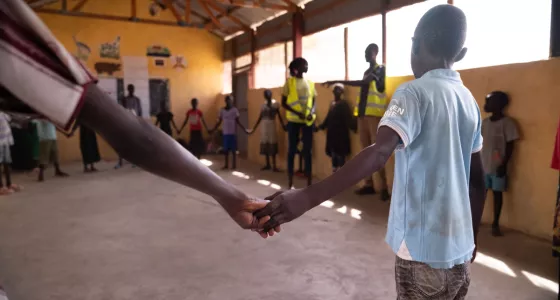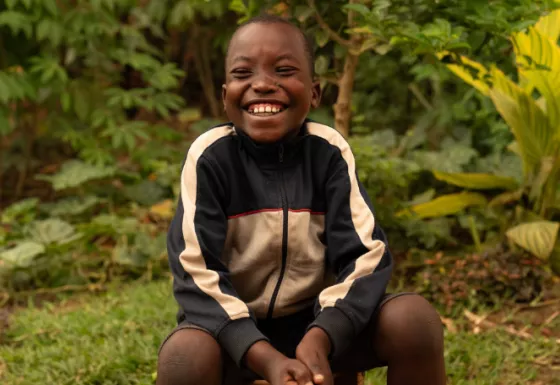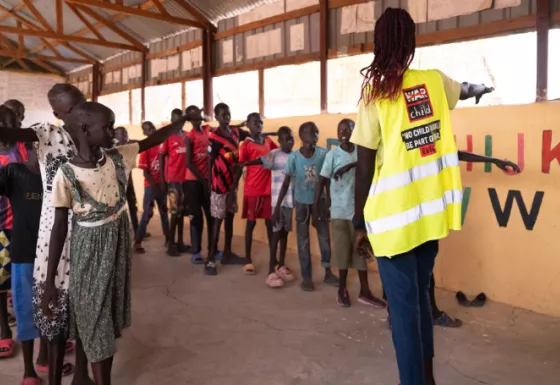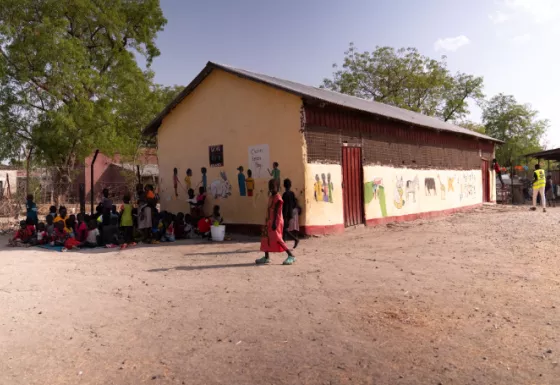Since January 2025, over 65,000 people from the Democratic Republic of the Congo (DRC) have arrived in Uganda, escaping an escalation of conflict in the east of the country. Despite a fragile ceasefire, every single day around 400 people, nearly half of them children, make the harrowing journey to safety.
And it is harrowing.
The journey stretches over rugged mountains and dense forest. It’s a path fraught with danger from armed groups to exposure to the elements. Many children arrive alone, separated from their families, frightened and exhausted.
At the crowded reception centres, where resources are already stretched thin, children face a new set of risks: trauma, violence, neglect, and a deep sense of uncertainty.
That’s why War Child is launching an emergency response to help children from DRC and to stand with them as they begin to rebuild their lives.
Our response begins at the reception centres, where we’re working to make sure children are protected, comforted, and cared for. We’ll provide emergency kits with clothing, hygiene items, and essentials for women and girls. These basics, though small, restore a sense of dignity and remind families that they’re not alone.
We’ll also provide psychological first aid and stress management sessions to help children and caregivers begin to process their experiences and regain a sense of calm.
But safety isn't enough. Children need spaces to heal.
We’re introducing structured play and resilience-building activities and for those who need more intensive support, especially children who are separated or at high risk, we’ll provide case management and referrals to ensure they get the care and protection they need.
We know that lasting change comes from local communities. We’ll train first responders, caseworkers, and facilitators in the best practices for protecting children in crisis. By building local capacity, we’re helping ensure that support for children continues long after the emergency response ends.
And Uganda is not alone. Just across the border, South Sudan has endured wave after wave of violence since gaining independence in 2011. Nearly 2 million people are now displaced within the country. And yet, South Sudan has welcomed around 500,000 refugees from neighbouring countries, many of them fleeing the devastating conflict in Sudan.
Together with local partners, we are supporting families affected by the conflict in Sudan in refugee camps and in transit centres, where people arrive after long, dangerous journeys.




